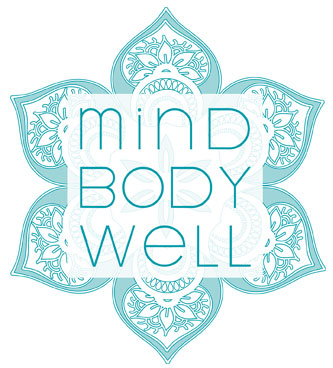We live in a world which is full of extremes… extremes particularly in an all-or-nothing sense.
Extremes like working excessive hours to then take long holidays to ‘get away from it all’. Or spending months overdoing it with alcohol to then revert to puritanical detox regimes. And there are those who burn the candle six nights a week to then attempt to make up for it with one long day of rest on the seventh. And people with the attitude that unless you adore someone with a ferocity close to obsession then you mustn’t love them at all.
The most common all-or-nothing attitudes I see in my practice are the ones people have about food and exercise. Many people have certain foods they’ve labeled as ‘bad’ and as a result they do their best to completely avoid those foods. Attempting to take a ‘nothing’ or avoidant stance in regard to those foods can actually result in the ‘all’ of excessive consumption when even a small amount of that food is tasted.
A friend of mine remarked yesterday that she was surprised to see a bowl of small easter eggs on my kitchen bench. She couldn’t understand how I managed to leave them there without having to eat them all. “I like to eat all my eggs by Easter Monday then get the chocolate out of the house so I cant have any more” she said… a great example of all-or-nothing thinking about a particular type of food.
The recent popularity of the ‘5:2’ diet is a concerning example of all or nothing attitudes towards food. The idea of this diet is that you eat ‘normally’ 5 days a week, then fast for the other two days. This ‘intermittent fasting’ is supposed to help people loose weight. Research tells us that the impact of extreme under or over-eating in the longer term is a slowing of metabolism and gradual weight gain. And weight aside, extremes like this confuse our hunger/fullness signals so that we struggle to interpret the messages coming from our bodies about food.
And then there are extreme attitudes about exercise. I regularly hear people expressing plans to take up running, to go to the gym, or to engage in some other form of rigorous exercise regime. It seems unfashionable to simply go for a walk, or to practice other forms of gentle activity which may be enjoyable… and therefore more likely to be sustained in the longer-term. Yoga practice is a good example – even a regular gentle Yoga practice can enhance health and wellbeing in many ways. You don’t have to do 30 days in a row of sweaty-exhausting-bust your butt type Yoga to get the benefits. Often a more gentle enjoyable practice is likely to be sustained over time, enhancing health and wellbeing in the longer term.
The most significant problem with extremes is their lack of sustainability. Any extreme attitude or behaviour is, by nature, usually the precursor for it’s opposite. We cant avoid something by fiercely trying to hold on to the opposite. You know those metal spheres you sometimes see suspended by string as a desk ornament… you pull one of the spheres in one direction and then let it go, and the effect of the momentum ricochets through to the other side to create movement in the opposite direction. Life’s a bit like that. Any extreme stance, attitude, or behaviour is highly likely to give rise to it’s opposite.
So, why is moderation so difficult?
1. Some people don’t feel they’re alive unless they’re bumping up against the edges of life, playing with the boundaries, finding out how far and how hard they can push things before they break. The black and white world of all-or-nothing is for many, preferable over the multitude of inexact and undefined shades of grey in between.
2. Moderation requires mindfulness. Without mindfully paying attention to the subtleties of our experiences we may not know we’re experiencing something unless it’s felt in the extreme. For example, without sowing down to eat mindfully we may not appreciate the signals of satiation (ie. ‘I’ve had enough now thanks’) our body provides for us. Without mindful attention we often don’t experience sensations unless they’re extreme, distracting, distressing, or painful.
3. Moderation isn’t cool. It’s part of popular culture to express our experiences in terms of extremes. My husband went through a period recently of answering ‘awesome’ to everything I said which was positive or interesting. Thankfully he finally understood that ‘awesome’ really left him nowhere to go when things actually were that great. Being able to acknowledge our emotions and experiences in moderate terms allows us to differentiate our ‘big’ experiences, and also to appreciate the more subtle ones when they do occur.
So how can we develop moderation?
Learn to be mindful of your experiences and sensations as they arise, so you can appreciate the subtleties of life as they occur.
Avoid the temptation toward extremes, consider taking a moderate stance in what you do and how you spend your time. Instead of exercising for 2 hours today, consider half an hour today and then following that up with more activity on a couple of other days through the week.
Mind your language. Save up your ‘awesomeness’ for times which are truly deserving of it and allow yourself to appreciate more gentle experiences for what they are.
Look for the middle ground, rather than setting yourself up for ‘nothing’ by trying to do ‘all’.
Remind yourself of the power of moderation and bring it your mind as an intention as you go about your day. You might be surprised how peaceful it is to walk a more moderate path.

